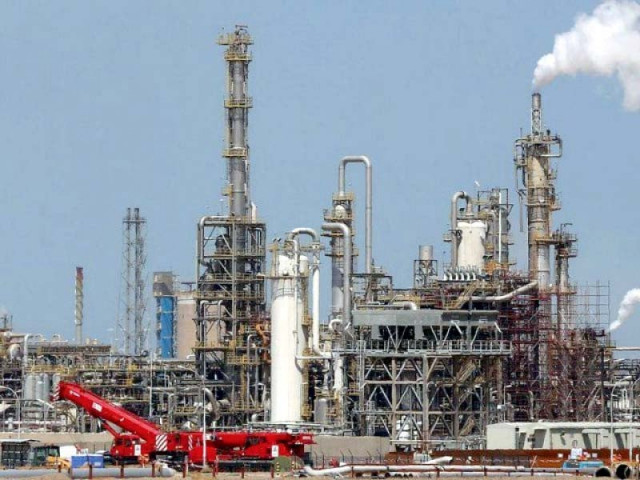Indian oil refining claims rubbished
PRL MD dismisses talk of oil processing in India before shipment to Pakistan

Pakistan has forcefully dismissed the notion being floated in social media that Russian crude oil was refined in an Indian refinery before being sent to Karachi Port.
Indian media is repeatedly claiming that the Russian oil was first processed in an Indian refinery and then dispatched for consumption in Pakistan.
According to an Indian news outlet, it was the Russian president’s policy not to annoy India. However, the Pakistani side has rejected such claims, terming them “rubbish”.
Pakistan Refinery Limited (PRL), which is processing the Russian crude, has turned down the rumours doing rounds in social media about the purported processing of Russian oil, meant for use in Pakistan, at an Indian refinery.
Talking to The Express Tribune, PRL Managing Director Zahid Mir said that Pakistan had purchased Urals-grade crude directly from Russia.
He elaborated that PRL signed a contract for supply of 100,000 tons of Urals crude oil, which was loaded at a Russian port and offloaded at an Omani port on two small shuttle vessels for onward shipment to Karachi Port.
According to the plan, both shuttle vessels arrived at Karachi Port and delivered the cargo, he said, adding that technically crude oil did not require any refining before its sale. “Therefore, the talk of crude refining at an Indian refinery is completely absurd.”
Mir revealed that the procured Russian crude was being processed at PRL and a comprehensive report would be submitted to the government after the completion of processing.
Government officials insist that the import of Russian oil is part of a strategy to boost diplomatic relations with Moscow through oil diplomacy.
Pakistan has so far been banking on Middle Eastern oil supplies and the purchase of Russian oil has opened a new avenue for energy import from diversified markets.
According to sources, the Russian oil is cheaper when compared with the Gulf oil market, which will encourage Pakistan to ink a long-term supply deal with Russia.
“Once PRL submits its report on the ratio of petroleum byproducts extracted from the Russian oil and the economics of consuming this oil, then the Pakistani government will make decision on a potential long-term deal with Moscow,” a source said.
Russian crude is said to be containing a higher ratio of furnace oil, which Pakistan’s major oil consumers have already abandoned.
Refineries in the country have been facing problems for a long time in finding customers for furnace oil after power plants switched to liquefied natural gas (LNG).
Of late, they are opting for furnace oil exports, even at a loss, to dispose of heavy volumes. Pak Arab Refinery Limited (Parco) and PRL have exported furnace oil at a loss of around Rs30,000 per ton.
Pakistan started importing LNG in 2015 during the tenure of previous Pakistan Muslim League-Nawaz (PML-N) government. However, the then government did not conduct due diligence for the use of furnace oil.
Since that time, the local refineries have been in trouble and announced partial shutdown several times.
The government should make a decision keeping in view the production of petrol, high-speed diesel and furnace oil and the economics of consuming Russian oil, sources said.
Russia offered Pakistan the option of paying for its oil in one of the three currencies, namely the UAE dirham, Chinese yuan and Russian ruble. Pakistan opened Letters of Credit (LCs) in the Bank of China to make payments due to dollar shortage and the US-Russia row over the Ukraine war.
Published in The Express Tribune, July 5th, 2023.
Like Business on Facebook, follow @TribuneBiz on Twitter to stay informed and join in the conversation.



















COMMENTS
Comments are moderated and generally will be posted if they are on-topic and not abusive.
For more information, please see our Comments FAQ